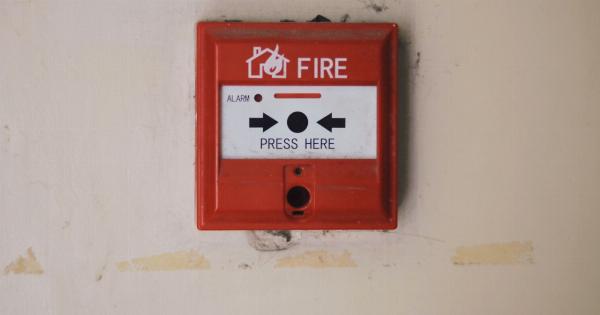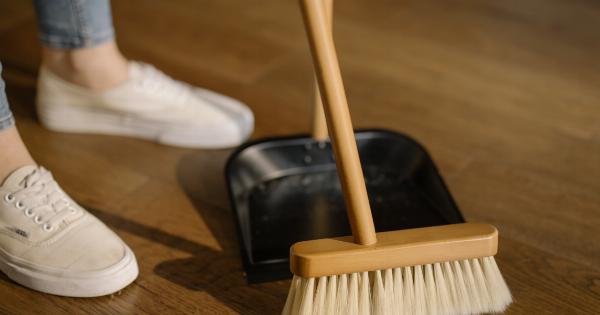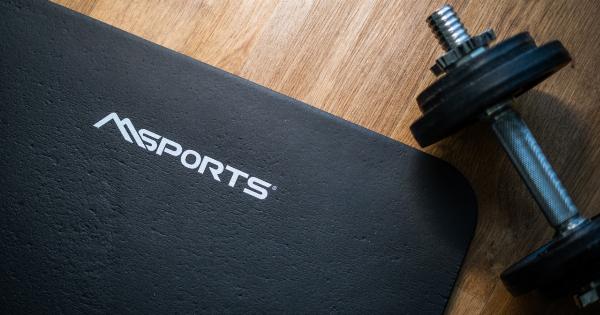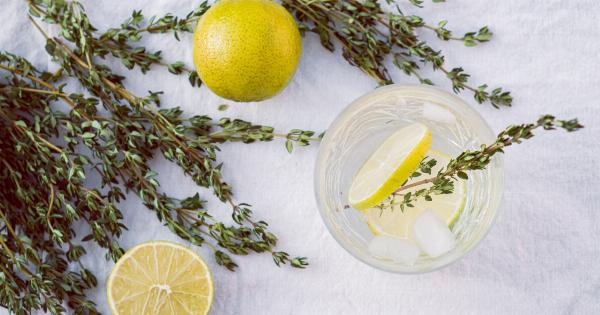Hemorrhoids, also known as piles, can be an uncomfortable and painful condition that affects many people. They occur when the veins in the rectum and anus become swollen and inflamed.
While there are various factors that can contribute to the development of hemorrhoids, one effective way to prevent them is through proper hydration.
What are Hemorrhoids?
Hemorrhoids are vascular structures in the anal canal that help with stool control. However, when these veins become swollen or inflamed, they can cause discomfort, pain, itching, and bleeding. There are two types of hemorrhoids:.
Internal Hemorrhoids
Internal hemorrhoids are located inside the rectum and are usually painless. They can, however, cause bleeding during bowel movements. They may also prolapse or protrude outside the anus.
External Hemorrhoids
External hemorrhoids are located under the skin around the anus. They can be itchy and painful. Blood clots can sometimes form in external hemorrhoids, causing further discomfort.
The Importance of Hydration in Hemorrhoid Prevention
Proper hydration plays a crucial role in preventing hemorrhoids. When the body is adequately hydrated, the stools remain soft, making them easier to pass.
Additionally, hydration helps prevent constipation, which is a significant contributing factor to the development of hemorrhoids.
Water and Fiber for Hemorrhoid Prevention
Drinking an adequate amount of water is essential for maintaining healthy bowel movements. It is generally recommended to drink at least eight glasses of water per day.
Water helps soften the stools and prevents straining during bowel movements, reducing the risk of hemorrhoids.
In addition to water, consuming a diet rich in fiber is also important. Fiber adds bulk to the stools, making them easier to pass. Some excellent sources of fiber include fruits, vegetables, whole grains, and legumes.
Including these fiber-rich foods in your diet can help prevent constipation and promote regular bowel movements.
Avoid Dehydrating Beverages
While water is the best drink for hydration, certain beverages can have a dehydrating effect on the body. It is important to limit or avoid drinks that can contribute to dehydration, such as alcohol and caffeinated beverages.
These drinks can cause water loss and make the stools harder and more difficult to pass, increasing the risk of hemorrhoids.
Hydration Tips for Hemorrhoid Prevention
Here are some tips to help you stay hydrated and prevent hemorrhoids:.
- Drink at least eight glasses of water each day.
- Include fiber-rich foods in your diet, such as fruits, vegetables, whole grains, and legumes.
- Avoid or limit the consumption of alcohol and caffeinated beverages.
- Make water your primary beverage choice throughout the day.
- Carry a water bottle with you to ensure you have access to water wherever you go.
- Add fruits like berries or citrus slices to your water for flavor.
- Set reminders to drink water regularly, especially if you have a busy schedule.
- Listen to your body’s thirst signals and drink water when you feel thirsty.
- Monitor your urine color – a pale yellow color indicates good hydration.
- If you find it challenging to drink enough water, try using a hydration tracking app or setting hourly goals.
Other Benefits of Hydration
Keeping your body properly hydrated offers several other health benefits, including:.
- Improved digestion
- Increased energy levels
- Enhanced brain function
- Healthy skin
- Regulated body temperature
- Detoxification
By prioritizing hydration, you can improve your overall well-being while also preventing the discomfort and pain associated with hemorrhoids.
When to Seek Medical Help
While proper hydration can help prevent hemorrhoids, it is important to seek medical help if you experience persistent symptoms or severe discomfort.
A healthcare professional can provide a proper diagnosis and recommend appropriate treatment options, including lifestyle changes, medication, or, in severe cases, surgical intervention.
In Conclusion
Hydration plays a crucial role in preventing hemorrhoids. By drinking an adequate amount of water, consuming fiber-rich foods, and avoiding dehydrating beverages, you can keep your stools soft and prevent constipation.
Prioritizing hydration also offers numerous other health benefits. Remember to listen to your body’s thirst signals and seek medical help if you experience persistent symptoms. Stay hydrated and keep hemorrhoids at bay!.






























